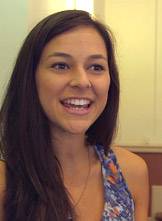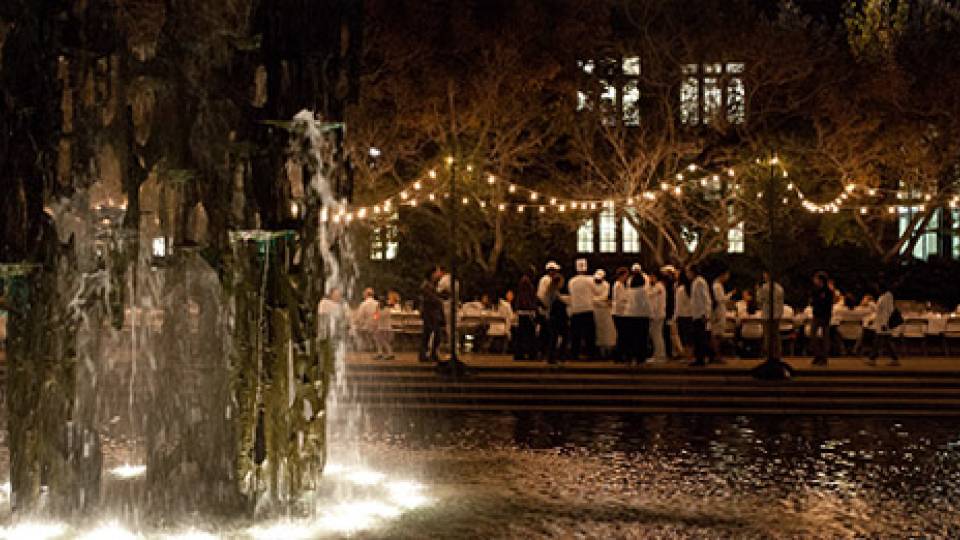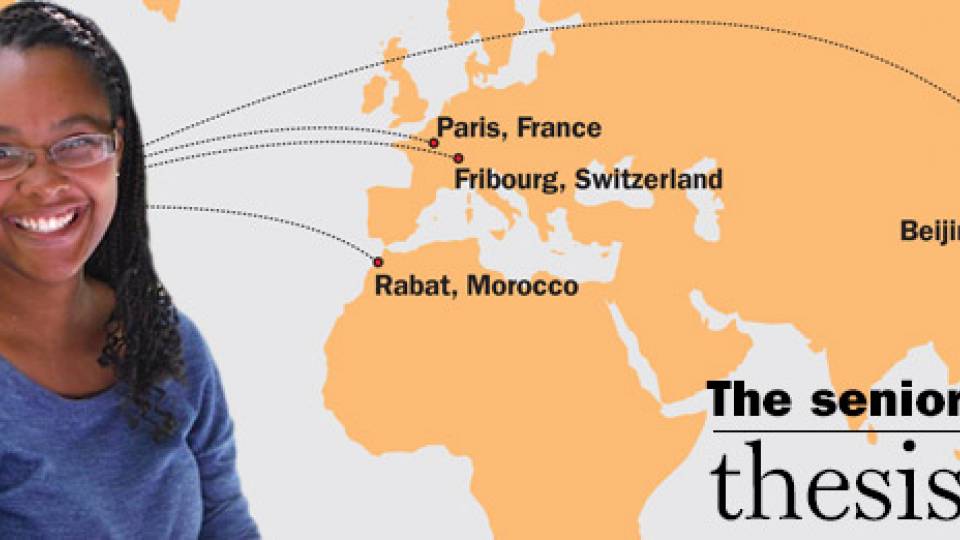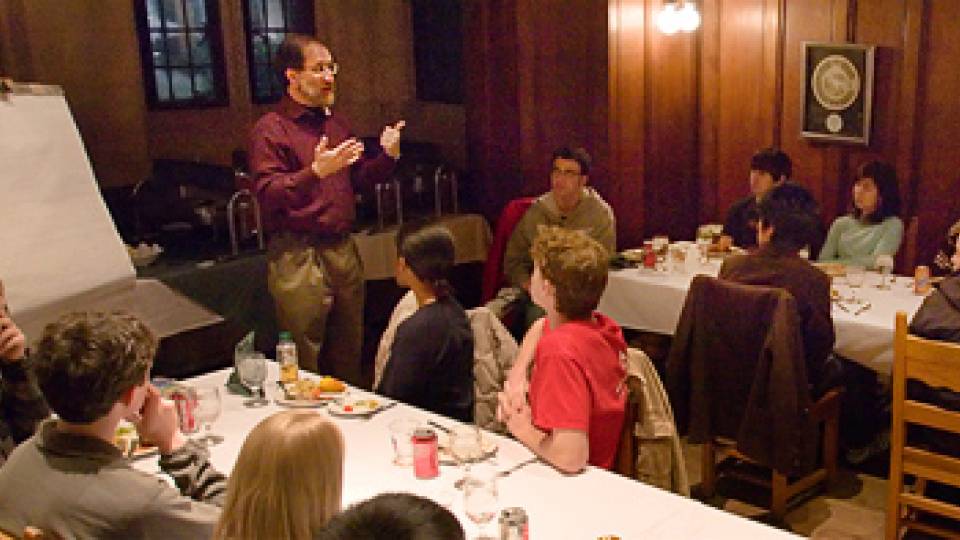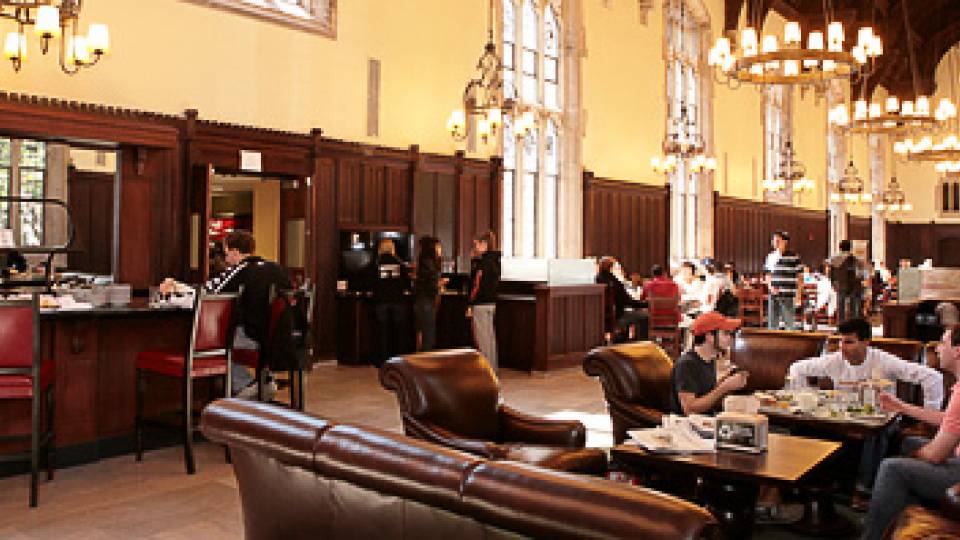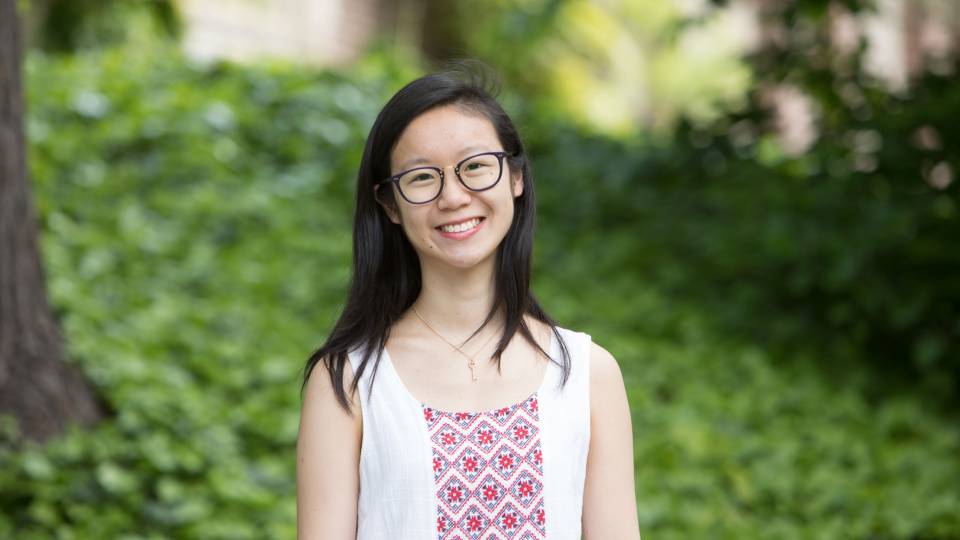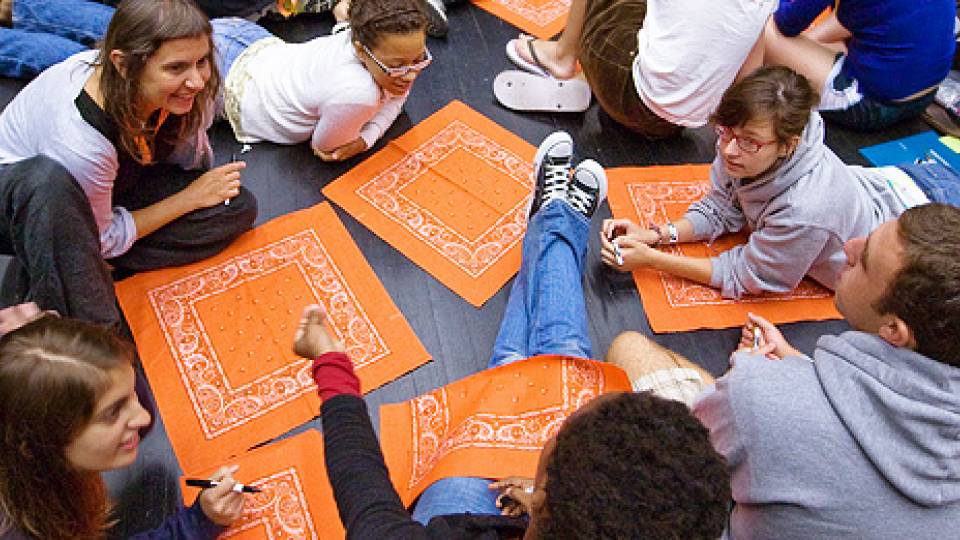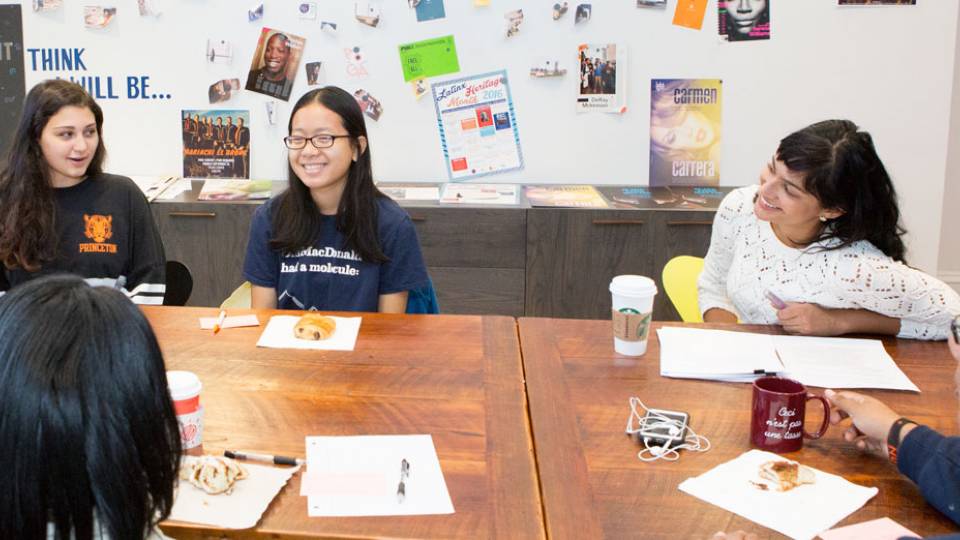Students from the University of Cambridge and the Chinese University of Hong Kong (CUHK) traveled to the United States earlier this fall to live, dine and socialize like Princeton students as part of a pilot residential college exchange program.
The nine visitors were able to compare their university homes — St. John's College at Cambridge and Morningside College at CUHK — to Princeton's Forbes and Whitman colleges. Last spring break, five Forbes residents traveled to Cambridge, England, and four Whitman residents journeyed to Hong Kong for similar experiences.
"Morningside and Whitman both have a feel to them of community. Everyone wants to get to know one another, sit with each other, eat with each other," said Nanret Senok, who spent a week living in Whitman College with three classmates from CUHK. "Once students find out you are not from Princeton, suddenly they have a whole trunk-worth of questions for you. They are very engaging and friendly."
For many of the international students, the visit to Princeton marked their first time in the United States. Their activities included attending classes; eating meals in the dining halls; mingling with students at open microphone nights and other social events; participating in a community service activity through the Student Volunteers Council; and taking day trips to New York City.
"It's not often you get to see [another] university campus from the inside out," said Simon Schulz, who was hosted at Forbes College for a week with four Cambridge classmates.
CUHK student Jonathan Lee said one of his favorite moments at Princeton was walking through the campus on a sunny fall day.
"The environment is very nice," he said. "There are a lot of people sitting on benches reading or doing work. I [enjoyed] joining them, just chilling and reading."
Princeton senior Jonathan Bass said the residential exchange provided the best of both worlds.
"I knew I didn't want to study away from Princeton for a long time," Bass said. "So the opportunity came up to visit Cambridge during spring break and it was the perfect chance for me to travel and experience another school with other Princeton students."
Junior Sonya Hayden said the chance to visit Hong Kong was an opportunity she could not pass by.
"My favorite part of the trip was learning about the students who hosted us and the differences between our residential colleges," she said. "And, of course, the incredible food!"
When it came time to host the international students this fall, junior Evan Kratzer said the program gave him a renewed perspective on life at Princeton.
"You have to break down your own experience and think what are the fundamental things that we do [at Princeton] that defines our experience? And we want to show that off," Kratzer said. "It is something that makes you really reflect on your entire experience here."
The idea for the exchange began with a connection between Forbes College Master Michael Hecht and St. John's College Master Christopher Dobson, both of whom are chemists and colleagues in the fields of protein structure and engineering. The Office of the Dean of the College provided support for Princeton to participate in the exchange.
"I thought it would be wonderful if we had these sister colleges at universities overseas," said Hecht, a professor of chemistry. "We have a lot of international programs at Princeton, though most of them are focused on a particular academic discipline. I thought this was an opportunity to have an international experience that was more focused on life and culture. It's based in an academic setting, but you are comparing residential college to college, university to university, city to city and country to country."
Whitman College Master Sandra Bermann said she had similar goals. Her experience as chair of the working committee for the Bridge Year Program, which enables students to pursue international civic engagement projects before starting freshman year, inspired her to look for ways that service and cross-cultural immersion might become part of residential college experience.
"We have a series of events called Whitman Global to point up the intersection of cultures that occurs right here on campus. Having a 'sister college' across the world seemed a particularly intriguing possibility," said Bermann, the Cotsen Professor of the Humanities and a professor of comparative literature.
She continued: "Through the residential exchange, we hoped to weave an awareness of cross-cultural experience even more deeply into the fabric of everyday student life at Princeton. We expect it might also encourage more of our students to take advantage of the range of opportunities for study, work and service abroad that the University offers."
Cambridge student Katherine Reggler said she expects friendships made through the program to endure.
"Students [at Princeton] are from all different parts of the country and the world. I've really enjoyed getting to know people who have different experiences. We actually have quite a lot in common and we get on really well," she said. "I can see this going forward and it's not just going to be the exchange. If they ever visit the United Kingdom in the future or I come back to the United States, then we will meet up."
Bermann and Hecht said they hope the residential colleges will continue to offer similar learning experiences to Princeton students.
"As we look to the years ahead, we hope to have more opportunities to think about the way residential college life, with its living-learning environment, can be further expanded by the opportunity to exchange educational ideas — as well as individuals across cultures," Bermann said.
